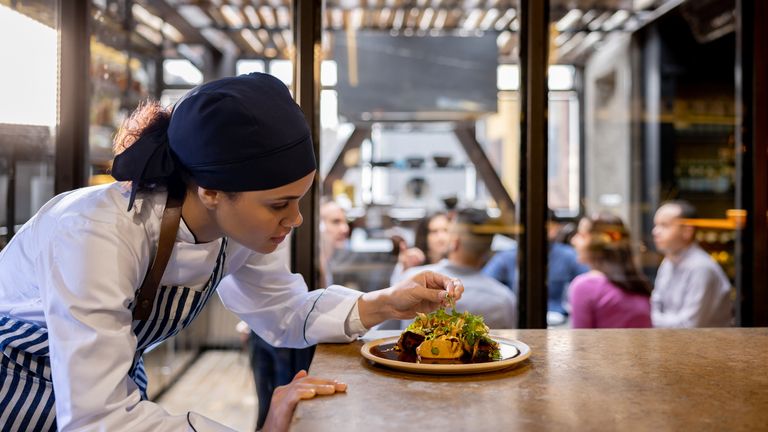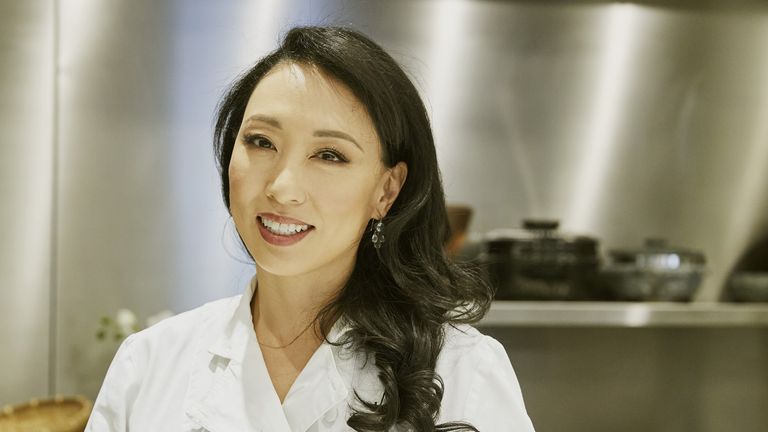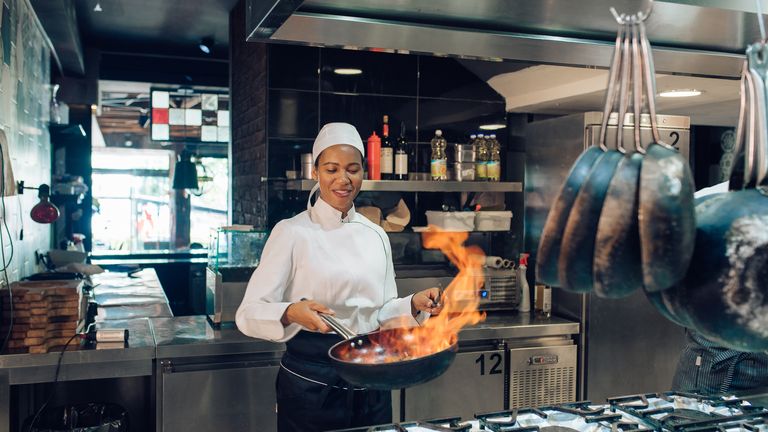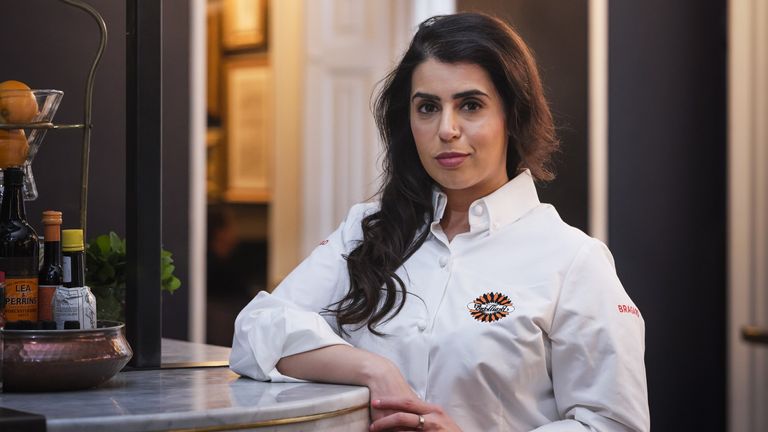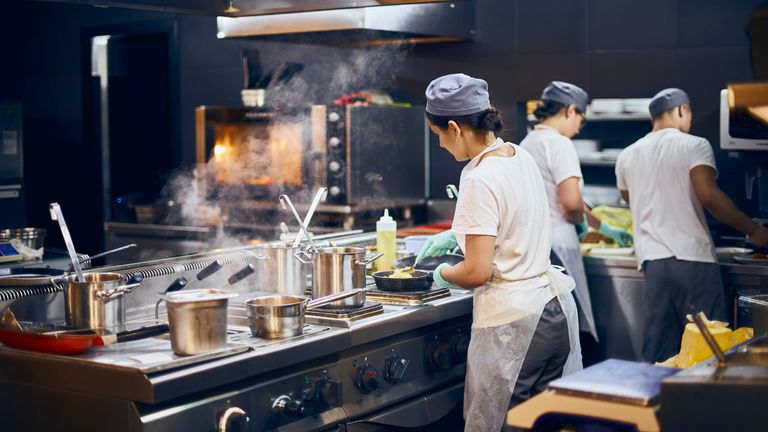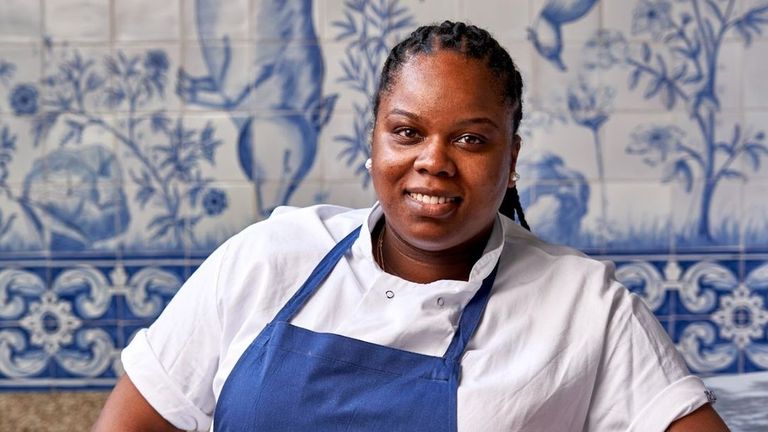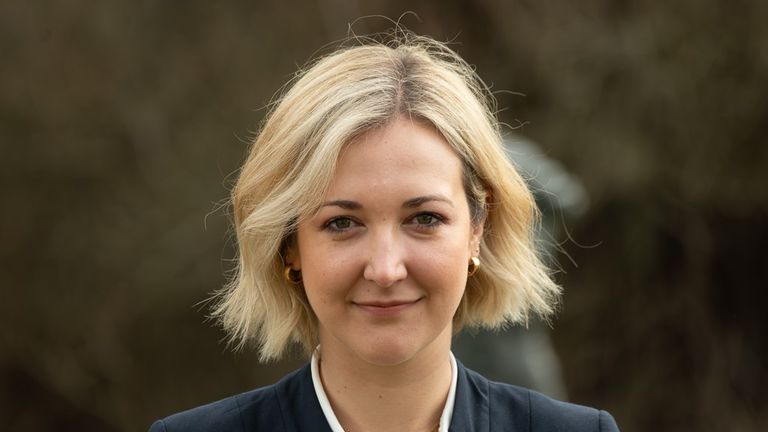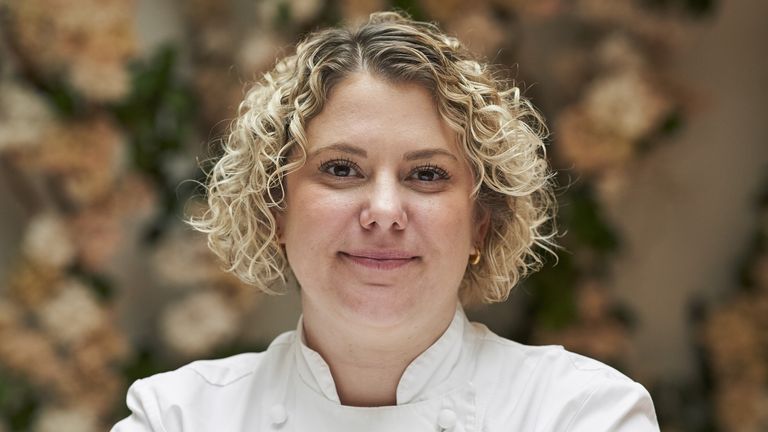During a busy lunch shift, when chef Sally Abe was asked to replace her male colleague cooking the aged beef fillet, he responded by pouring a pan of scalding oil on her hand.
The man claimed it was an accident, something “we all knew was a lie”, Sally wrote in her memoir, A Woman’s Place is in the Kitchen.
The book lifts the figurative saucepan lid on what it is like being a woman in male-dominated professional kitchens. With 16-hour days, rare toilet and food breaks, and a culture of not calling in sick unless you’re on your deathbed, the story she tells is a brutal insight into the hospitality industry.
The book goes some way to explaining why just 17% of professional chefs in the UK are women and only 8% of Michelin-starred restaurants are female-led. Despite the playground insult telling women and girls to “get back in the kitchen”, when they try to do just that as a career, they face almost non-existent maternity leave, chef whites not made for a woman’s body and a culture of hypermasculinity.
Starting at the Savoy Grill, before moving to Gordon Ramsay’s restaurant at Claridge’s, Sally was often the only woman working behind the kitchen pass. She was also the only woman (that she knows of) to ever work the meat section at the latter.
It was often a “toxic working environment”.
“I think it’s quite shocking for people who don’t have any idea what hospitality is like,” Sally tells Money. “If you told someone to f*** off in a regular office, you would get sacked. But it’s just day-to-day in the kitchen.”
‘They christened me Tit-rat’
The assault by her colleague was a rare moment when the mental insults tipped over into physical.
“I think that particular person was just a really awful human being – and luckily you don’t encounter too many of those along the way,” Sally says.
But what is all too frequent are the barriers women face when working in professional kitchens.
Sally was christened “Tit rat” by her male counterparts.
“There was no real explanation as to why. I was the only woman working in one of the best restaurants in the whole of the UK and I was surrounded by men: it was hypermasculine, super fast-paced and I was holding my own,” she wrote in her book.
‘My colleague told me to stay in the kitchen’
TV chef Judy Joo, who co-owns the popular Seoul Bird in London, was steered away from the industry – she went to engineering school and later worked in finance before making the career shift into cooking. But working in these male-dominated industries prepared her for what was to come.
“During my internship at Bell Laboratories, on my very first day, I asked where the ladies’ room was, and no one knew. I had to walk to another building with the auditorium just to find the only one – that was wild,” she tells Money.
Then, working on the trading floor, she was the only female professional at her desk.
“While I never doubted my ability to do the job, it would’ve been great to have more female role models,” she says. “Seeing women in leadership makes it easier to imagine yourself there.”
Sexism in the culinary world is “almost expected”, she says, and as a result, “it’s incredibly frustrating and belittling”.
“Sometimes it doesn’t even hit you until later, and then you find yourself angry, wishing you’d responded differently in the moment. As women, people tend to second-guess our abilities, while men – especially a white male – wouldn’t face the same scrutiny over their experience or skills.”
She recently had a colleague telling her to “stay in the kitchen”.
“He told me I had ‘no business making any commercial business decisions for my company’. I am the CEO!
“I have an engineering degree from Columbia University and worked at Goldman Sachs and Morgan Stanley for five years before becoming a chef. My business and financial training is probably more rigorous than his! The nerve… so insulting! He is no longer working with me, to say the least.”
‘Where are all the women?’
Dipna Anand was born and raised in the kitchen – her grandfather opened the first Brilliant restaurant in the Kenyan capital of Nairobi in the 1950s. The Brilliant in Southall was established in 1975 and is now run by Dipna and her father. The restaurant was once declared the King’s favourite curry house (by the man himself).
“I grew up behind the counter, trying to see over and make myself useful while my parents ran the restaurant,” she says. “My brother and I would stack cans under the counter, and we would wait for customers to leave to go and lay the tables.”
She knew from a very young age she wanted to be a chef.
“My family would ask me what I was going to do, and I would say I wanted to be a chef, but they would say: ‘Don’t you want to be a doctor, or a lawyer, or an accountant?’ In my culture, it was not seen as the right thing to be,” she says.
When she first entered the industry, she says, she was “shocked” by how many men there were: “Where are the women?”
For the most part, she has more than held her own, but cooking is a physical job.
“I would need help carrying the crate of onions, or the masala, and the male chefs would be more than happy to help me. But that’s the only difference between me and a male chef.”
She says traditional gender roles still influence professional kitchens, particularly in the Asian community, with the long hours, weekend work and late nights a barrier (she makes a point of asking female colleagues how they are going to get home if their shift finishes late at night).
“Even today, when it comes to family-work life balance, women do have more responsibilities and it is hard for them to choose between their career and family,” she says.
Women ‘pushed away from the heat’
Starting as a commis chef in the banqueting kitchens of St Pancras Renaissance Hotel, Neuza Leal has risen to the role of executive chef across two restaurants in London.
She says female chefs are often pushed towards working in the pastry and salad sections, “to get away from the heat”.
“They don’t think you are strong enough, and you then want to prove them wrong,” she says.
At the start of her career, a senior colleague told her: “Just because of who you are, you will have to work harder than most people in the kitchen, because you are female, because you are black and because you are young.”
Even now she is senior, “people won’t assume I am head chef – they always go to the male colleague who is near me”.
‘They ask to speak to my husband, not me’
For Anya Delport, issues in the industry stretch beyond the kitchen doors. The 34-year-old from South Africa set up the Interlude, a Michelin-starred restaurant in West Sussex, with her husband, who is the executive chef.
“One of the biggest things I have faced is customers reacting differently towards me because I am a woman,” she tells Money.
“There have been times I have had to send certain staff members to a table instead because I felt like guests would have a better experience.”
Read more from Money:
What happens when the world’s gold mines run dry?
How to sit together on a flight without having to pay
Will ‘greatest chocolate bar return’? We asked Cadbury’s
On occasions, customers have asked to speak to her husband, instead of her.
She recently lost a pastry chef who moved to be closer to her husband: “I think society sometimes thinks a woman’s career in a relationship is the one that needs to be sacrificed.”
But she remains hopeful that things are changing, and more women will come up through the industry: “You do not have to conform to what society thinks you should be.
How Gordon Ramsay helped Sally past burnout
During Sally’s time at Claridge’s, she reached the brink of burnout, with Gordon Ramsay stepping in to get her therapy – something she describes as “life-changing”.
She paid this back by creating her own employee assistance programme when head chef at the Harwood Arms.
Sally is now executive chef at the Pem, a kitchen staffed by women, where just one chef is a man.
“There’s no ego, nobody is competing, and everybody just wants to do a good job,” she says.
“If you want to, it’s really not that hard and I start at the top. If you are a respectful boss and lead with love, guidance and empowerment, then it just filters down. It is probably easier to do that than it is to stand and shout at people all day.
“I’ve tried that and it’s exhausting and I went home at the end of the day and I felt like a horrible person.”
Judy, like Sally, is also optimistic about the future: “We all have to help each other and lift one another up and be each other’s advocates. We will rise together. This is so important. I am huge on mentorship; it is so important.”
Source: news.sky.com
